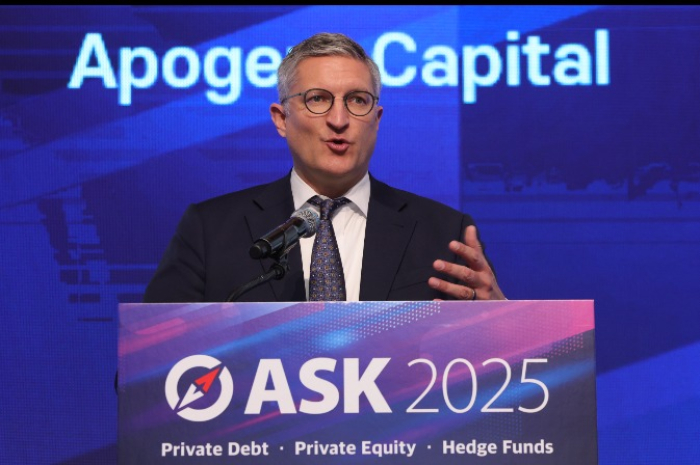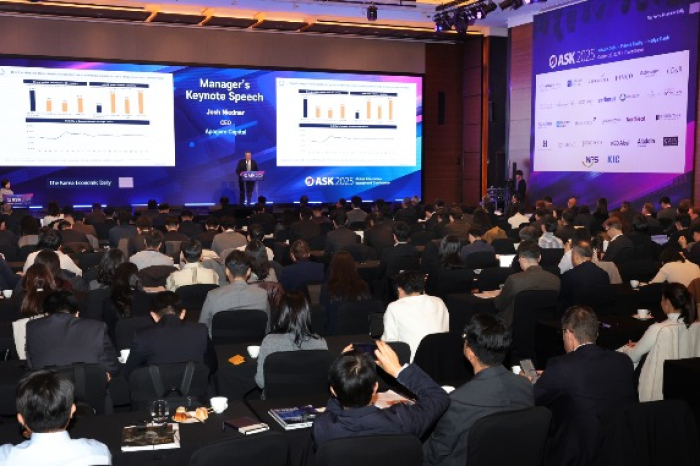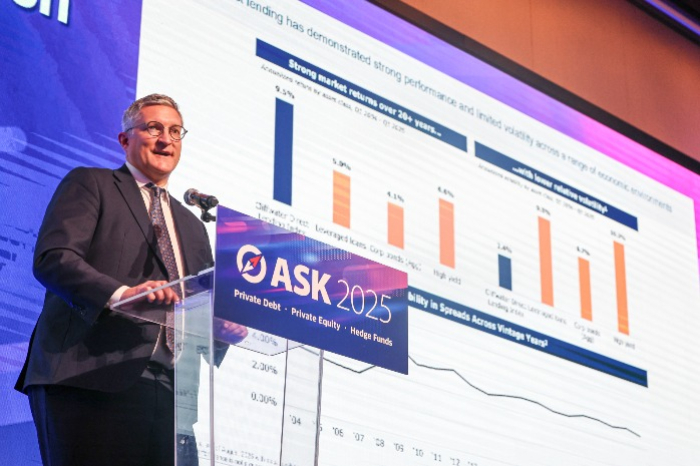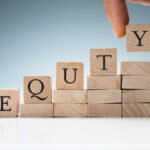
The US private credit market is poised for continued growth as lending demand broadens from mid-market firms to smaller businesses, and institutional investors expand allocations to the asset class, according to Josh Niedner, chief executive of Apogem Capital LLC.
“You can see tens of thousands of businesses in the US exist in the private market at scale,” Niedner said in a keynote speech at the ASK 2025 Global Alternative Investment Conference in Seoul on Oct. 29.
“And below that, hundreds of thousands of small and medium-sized businesses are growing. What you have is a vast set of opportunities for US direct lending to address.”
The expansion comes as the number of publicly listed companies in the US continues to shrink.
“Over the last 25 years, the number of publicly listed companies in the US has steadily declined, while the number of private equity-owned businesses has steadily increased,” Niedner said.
“These trends don’t appear to be slowing down or leveling off.”
INSTITUTIONAL DEMAND RISES
Private credit fundraising has surged over the past decade, with annual inflows of $200 billion to $300 billion in recent years, according to Apogem’s data. Yet allocations to private credit remain relatively small in institutional portfolios.

“Despite all of that capital coming into the market in recent years, it still represents a fairly small portion of allocations among institutional investors,” Niedner said.
“That’s one piece of evidence that there is room to run and room for growth.”
COOLING ACTIVITY, BUT SUPPORTIVE CONDITIONS
Niedner acknowledged that deal activity has softened since the boom of 2020-2021, when low interest rates and government stimulus during the pandemic era drove record lending volumes.
“Inflation worries started to happen, and you had rate hikes begin, which introduced uncertainty and constricted volume,” he said. “There was a modest rebound in mid-2024, but volumes have dipped again this year. Still, as rate uncertainty fades, we expect volume to pick back up.”
PROVEN RESILIENCE
Despite concerns over the bankruptcy of a US auto parts maker, Niedner emphasized the durability of the asset class.
“We have 20 years of data to point to, and US direct lending has really outperformed very consistently and by a fairly wide margin some of the other fixed-income opportunities,” he said.
“Even with multiple different interest-rate environments and macroeconomic climates, and COVID, US direct lending has demonstrated very strong returns over all that time.”

He added that spreads and borrower performance remain stable.
“Median revenue and EBITDA growth over the hundreds of investments that we have in our portfolio has remained consistently strong quarter over quarter for the last several years,” Niedner said.
“It would appear that the addressable opportunity set in US direct lending remains healthy from a financial standpoint.”
Niedner said the case for US direct lending remains strong.
“It’s a market that continues to expand, supported by companies with solid fundamentals and a 20-year record of steady, low-volatility returns,” he said.
Apogem Capital CEO added that, even as new strategies emerge across private credit, “core US direct lending still offers one of the most durable opportunities in the market.”
Apogem Capital, a US-based alternative investment manager under New York Life Investments, oversees about $40 billion in assets as part of the parent company’s roughly $800 billion platform.
It focuses on US private assets across direct lending, multi-manager and secondary strategies, GP stakes and private real assets, with its core mandate centered on direct lending to companies in the core and lower middle market.















